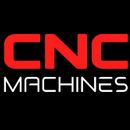Celebrating July 4th: The Heart of American Manufacturing and Independence

US July 4th and American Manufacturing: A Legacy of Innovation and Independence
As fireworks light up the sky and flags wave proudly, July 4th stands as a testament to American independence. Beyond the celebrations, it's also a moment to honor the nation's manufacturing heritage—a driving force behind its economic strength and global influence.
🏭 The Birth of American Manufacturing
The roots of American manufacturing trace back to the late 18th century, aligning closely with the nation's quest for independence:
- 1790: Samuel Slater established the first successful cotton-spinning mill in Rhode Island, marking the beginning of the American Industrial Revolution.
- 1793: Eli Whitney's invention of the cotton gin revolutionized the cotton industry, significantly boosting production.
- 1798: Whitney introduced the concept of interchangeable parts in manufacturing, laying the foundation for mass production techniques.
These innovations not only propelled economic growth but also solidified the young nation's self-reliance.
📜 A Timeline of Manufacturing Milestones
American manufacturing has undergone significant transformations over the centuries:
- 1813: The Boston Manufacturing Company pioneered the first integrated textile mill, streamlining production processes.
- 1879: Thomas Edison invented the practical incandescent light bulb, illuminating homes and factories alike.
- 1908: Henry Ford introduced the Model T, and by 1913, he had implemented the moving assembly line, drastically reducing production time.
- 1940s: During World War II, American factories became the "Arsenal of Democracy," producing vast quantities of military equipment.
- 1980s-Present: The rise of automation and globalization reshaped the manufacturing landscape, leading to both challenges and innovations.
🎆 Celebrating Independence with American-Made Products
July 4th is an ideal time to support domestic manufacturers. From flags and fireworks to grills and apparel, choosing American-made products bolsters the economy and honors the nation's industrious spirit.
🔧 The Future: Industry 4.0 and Beyond
Modern manufacturing is embracing advanced technologies:
- Automation & Robotics: Enhancing efficiency and precision on the production floor.
- Artificial Intelligence: Predicting maintenance needs and optimizing supply chains.
- 3D Printing: Allowing rapid prototyping and customization.
These innovations ensure that American manufacturing remains competitive and continues to evolve.
🎉 Honoring the Past, Building the Future
As we commemorate Independence Day, let's reflect on the integral role manufacturing has played in shaping the United States. From the early days of the Industrial Revolution to today's technological advancements, the sector embodies the nation's resilience, creativity, and determination.


